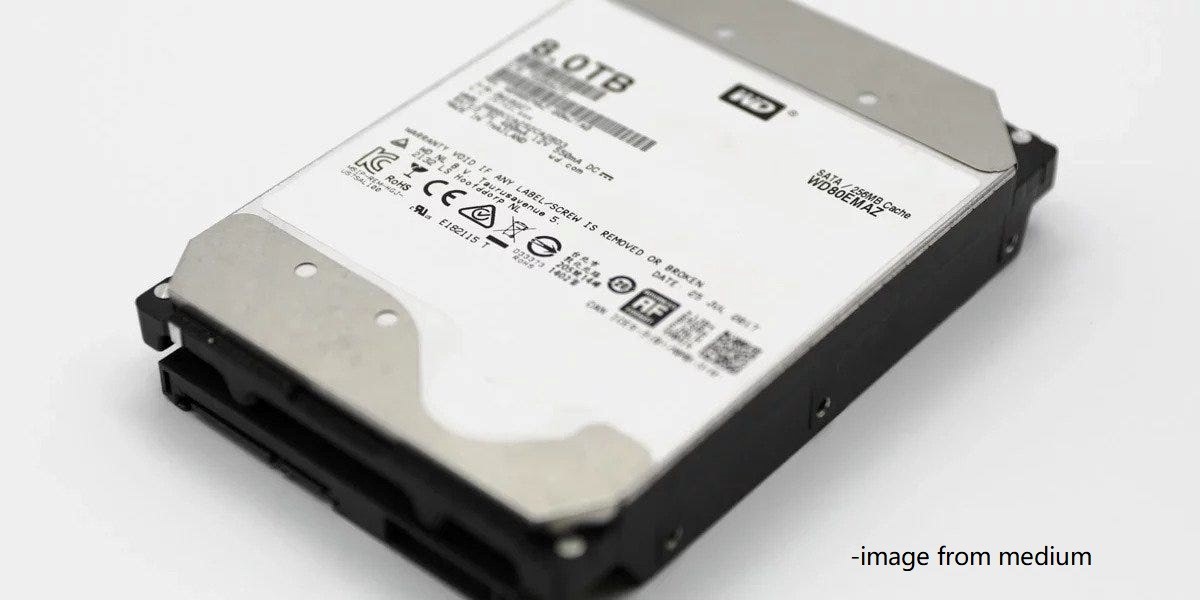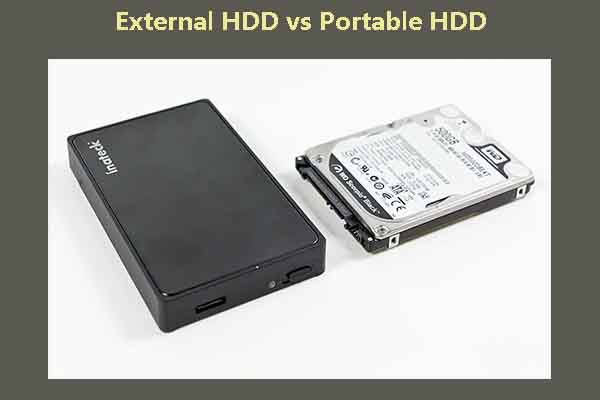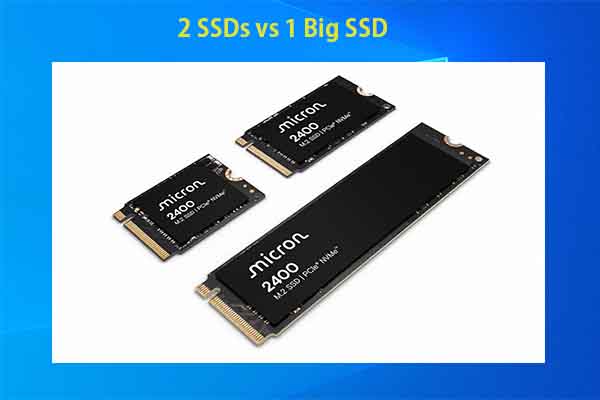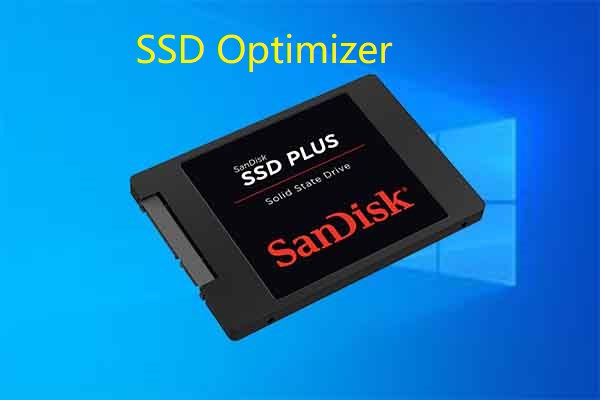About Air Hard Drive
Air hard drives operate in a standard air-filled environment, which generates many drags and frictions on the spinning platters. They contain spinning magnetic platters that store data and rotate at high speeds in an air-filled enclosure.
You should note that air HDDs need more space between platters to reduce turbulence and friction, reducing the number of platters that can fit in a standard 2.5-inch or 3.5-inch form factor.
Tiny read/write heads float above the platters on a cushion of air to read and write data. The actuator arm moves the read/write head across the platters to access data. Air HDDs have been used for personal computers, servers, and external storage devices for decades. They can also be used for budget servers and gaming consoles.
About Helium Hard Drive
The helium hard drive is a hard disk drive filled and hermetically sealed with helium gas. Filling a hard drive with helium creates a unique low-density environment where the internal hardware can work more efficiently. Besides, as helium has about 1/7 the density of air, its turbulence is lower than air.
Less friction demands less rigidity in platter thickness, enabling engineers to not only use thinner platters but also fit additional platters within each enclose. It also results in bigger capacity and higher speed.

The first commercially available helium hard drive was introduced by HGST in November 2013. Helium HDDs are mainly used for data centers, cloud storage, enterprise storage, and big data applications.
Air vs Helium Hard Drive
Helium vs Air hard drives: what’s the difference between them? The table below reveals the difference between air HDD and helium HDD.
| Features | Air HDD | Helium HDD |
| Capacity | Smaller (maximum size: 10TB) | Bigger (up to 20TB+) |
| Cost | Less expensive | More expensive |
| Power Consumption | Higher | Lower |
| Heat Generation | More | Less |
| Weight | Heavier | Lighter |
| Lifespan | Standard | Longer |
For more details, you can read the following content.
#1: Internal Environment
Internal environment is the main difference between air HDD and helium HDD. Filled with regular air, air HDDs demands more space between platters to reduce turbulence and friction. Moreover, as air is denser, it creates more drag on the spinning platters, creating noises and consuming more power.
High power consumption can result in increased heat generation. So, cooling solutions are required, especially in high-density environments like data centers.
Helium HDDs are filled with helium gas that is less dense than air, decreasing drag and friction. Additionally, helium gas allows for tighter spacing between platters, letting more platters to fit in the same physical space. In other words, more data can be stored to the drive.
With reduced drag and friction, helium hard drives are more energy-efficient. Less power consumption can cause less heat. Helium HDDs are quieter because of reduced turbulence and friction. In conclusion, internal environment can impact the performance, efficiency, and capacity of the hard drive.
#2: Capacity
Due to fewer platters, air hard drives usually have lower storage capacities. The maximum capacity is 10TB. As for helium hard drives, their capacity can reach up to 20TB or more because more platters can fit in the same form factor.
If you need a hard drive with large capacity, you can choose helium hard drive. You can buy it from manufacturers like Western Digital, Seagate, or Toshiba.
#3: Lifespan
Air HDDs are vulnerable to wear and tear because of higher friction and heat, so they may have a shorter lifespan in high-pressure environments. Differently, the sealed environment protects the helium hard drive from contaminants like dust.
Helium HDDs possibly have a longer lifespan. Helium vs air filled hard drive: which is more durable? The answer is helium HDD.
MiniTool Partition Wizard FreeClick to Download100%Clean & Safe
How to Know If Your Drive Is Filled with Air or Helium
As you see, an internal hard drive can be filled with air or helium. However, manufacturers don’t always state this information on the label or packaging of the drive. How to know if your drive is filled with air or helium? Here are some available methods for you.
Method 1: Manually Inspect the Drive
You can observe the drive information to identify if the disk is air or helium-filled. For instance, you should check the helium sealing, capacity, weight, and labeling details of the disk. If the drive’s documentation mentions a sealed design or helium technology, it might be a helium drive.
If the capacity of the drive is over 10TB, it should be a helium HDD. Besides, some helium drives have labels or markings stating that they are helium-filled. To be specific, Western Digital’s helium drives usually have a Helium logo or mention “HelioSeal” technology.
If the drive is manufactured by Western Digital, check if there is He in the model number or terms like Ultrastar He. If the manufacturer, look for terms like Helium-filled or Helium Technology.
You can also pay attention to the weight of the drive. Generally speaking, helium hard drives are slightly lighter than air-filled drives.
Method 2: Check the Specifications of Manufacturer
Manufacturer’s specifications also tell you if the drive is air-filled or helium-filled. Pay a visit to the official website of the disk manufacturer and search for the product datasheet or technical specifications for the specific model.
Additionally, search for the model number online to find relevant information from reviews, forums, or technical articles. Alternatively, contact the support team or the retailer and ask them if the drive is air-filled or helium-filled one.
Method 3: Use Professional Diagnostic Tools
A good way to know if the drive uses air or helium is to test it via professional diagnostic tools. For instance, you can use CrystalDiskInfo, HD Tune, or proprietary software of the manufacturer to read the SMART data of the disk. On Linux, you can run the smartctl command to check the drive’s details.
Bottom Line
Air vs helium HDDs: which is better? You may have the answer after making a comparison. This post summarizes the difference between air HDD and helium HDD in detail.




User Comments :